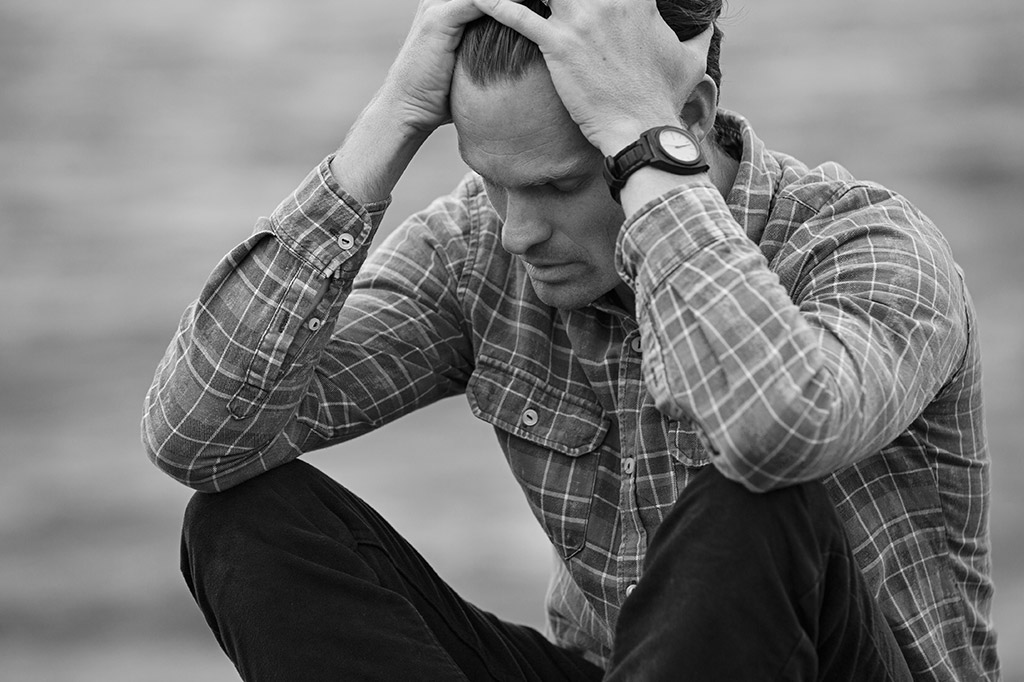The Grieving Process Of Divorce

Going through a divorce can be one of the most stressful and emotional events in your life. As such, the process you go through when grieving a divorce is very much the same as what you experience when you lose someone you love.
Whilst your marriage wasn’t a physical person in and of itself, it represented a life you and your spouse created or had planned to create together.
You’ll have memories, hopes and dreams full of emotion tied to your spouse which was represented by your marriage.
With the breakdown of your relationship and the subsequent process of divorce, there is certain to be a wave of turmoil and emotion experienced by both you and your spouse.
While going through the process of divorce, you’re likely to experience a range of emotions as you mentally come to terms with what is happening in your life as you transition from a married couple to being single.
The emotions experienced during the grieving process of divorce is the same for most people however the order in which they are experienced can be varied or felt simultaneously.
As a result, the grieving process for your divorce will be unique to you, but it will likely comprise of the five emotional stages outlined below:
Denial
Denial often starts before the divorce process has even begun. You may have started to identify that your marriage is breaking down, but you’re unable or unwilling to acknowledge it.
Once it becomes obvious that the relationship has ended, you may still be in a stage of denial, unable to accept the changes happening in your life as a result of the divorce.
Denial often results in clinging to your marriage, your spouse and the past in an attempt to provide yourself with a false sense of security, despite the obvious signs that your future is changing.
Feelings of denial is a common experience shared by many people about to go through or going through a divorce.
As humans we are genetically coded to cling to what is safe and familiar, the idea of divorce can be terrifying as it represents being alone with an unknown future.
The denial or unwillingness to identify the breakdown of the relationship in order to hold onto what is familiar is a popular coping mechanism and it’s completely normal to experience these feelings when going through the divorce process.
Anger
When going through a divorce, one of the most common emotions felt is anger which can stem from both the cause of the divorce and the failure of it.
At some stage throughout the process you’re likely to get angry at your spouse. You may blame them for their actions, for hurting you and your family.
You may also get angry with yourself for allowing certain events to take place or blame yourself for the breakdown of the marriage.
Aside from the anger aimed at yourself and your spouse, you may also experience feelings of anger towards the notion of marriage as a principle, including society’s expectations and viewpoint on the matter.
It’s important to identify that anger can be healthy as a tool as it allows you to push away from your spouse.
By being angry, you allow yourself to begin the transition from a couple to individuals, creating space and beginning the process of emotional detachment.
The anger pulls you from the denial stage as it allows you to realise that you’re no longer on the same team.
Bargaining
Part of the grieving process is bargaining. Bargaining can occur at any stage of the divorce as an attempt to negotiate your pain and confusion away.
During this time you may find yourself obsessing over what you or your spouse could have done differently to avoid the relationship breaking down.
You might experience thoughts along the lines of what if and if only, envisioning a future you may have had or wishing to go back in time and change what happened.
You may also find yourself pleading with higher powers, whether that be your god or someone you feel has sway in the situation.
An example of this would be begging God to make things go back to how they were, or by making promises in exchange for a different outcome.
Whilst bargaining can be useful to allow yourself to accept and explore the impact of your divorce, it can also have a detrimental effect as you may experience guilt and remorse if you stay in this stage for too long, which can slow the healing process.
Depression
Once the realisation that your life is changing has hit home, you may begin to experience feelings of sadness and depression.
Being alone for the first time in a long time and knowing that your future has changed from the one you had envisioned to one of uncertainty can result in feelings of loss, fear and overall depression.
Depression can manifest itself physically in the form of feeling foggy, heavy and numb. You may find yourself unmotivated about life and unable to function as you normally would.
Everything may seem to require more effort than normal, including housework and even your personal appearance as you might be inclined to stay in bed and hide away from the world.
Whilst the depressive stage of the grieving process for divorce is hard to get through, it can be a great opportunity for growth as it forces you to look at yourself and take responsibility for the choices that led you to be in the position your in now.
During this phase people often ask themselves hard questions such as what they want out of life, what’s next in their life journey and who they’ll become when they no longer identify as their spouse’s husband or wife.
As such, the divorce process is an incredibly emotional and stressful time. If you experience feelings of extended depression or feel that you need support to navigate this stage of the divorce process, please visit your doctor and talk to them about what’s going on.
If you’re experiencing thoughts of self harm or suicide please seek help immediately.
Acceptance
After experiencing all of the emotions listed above, you will eventually come to a place of acceptance.
During the grieving you likely asked yourself hard questions about your life and envisioned how you’re going to move forward.
You may now find yourself with a surprising sense of expectation. Expectation for things to get better, for you to prove things to yourself and go out to live a new life and prove to the world that you can move forward and achieve your goals.
You’ll probably still hold onto some feelings of anger and sadness, but those feelings will diminish over time as you build your new life.
It’s important to have a solid support team behind you when your going through the divorce process. This team should include friends, family and an experienced family law expert.
By having an experienced and professional family lawyer assist with the divorce process you’ll make the process as stress free and amicable as possible by allowing yourself an opportunity to be supported as you navigate the process of divorce and the emotions that come with it.
If you or someone you know needs assistance with their divorce, get in touch with Burbank & Brown. We’re here to ensure that you have the support and tools you need to make your divorce amicable and as stress free as possible.

